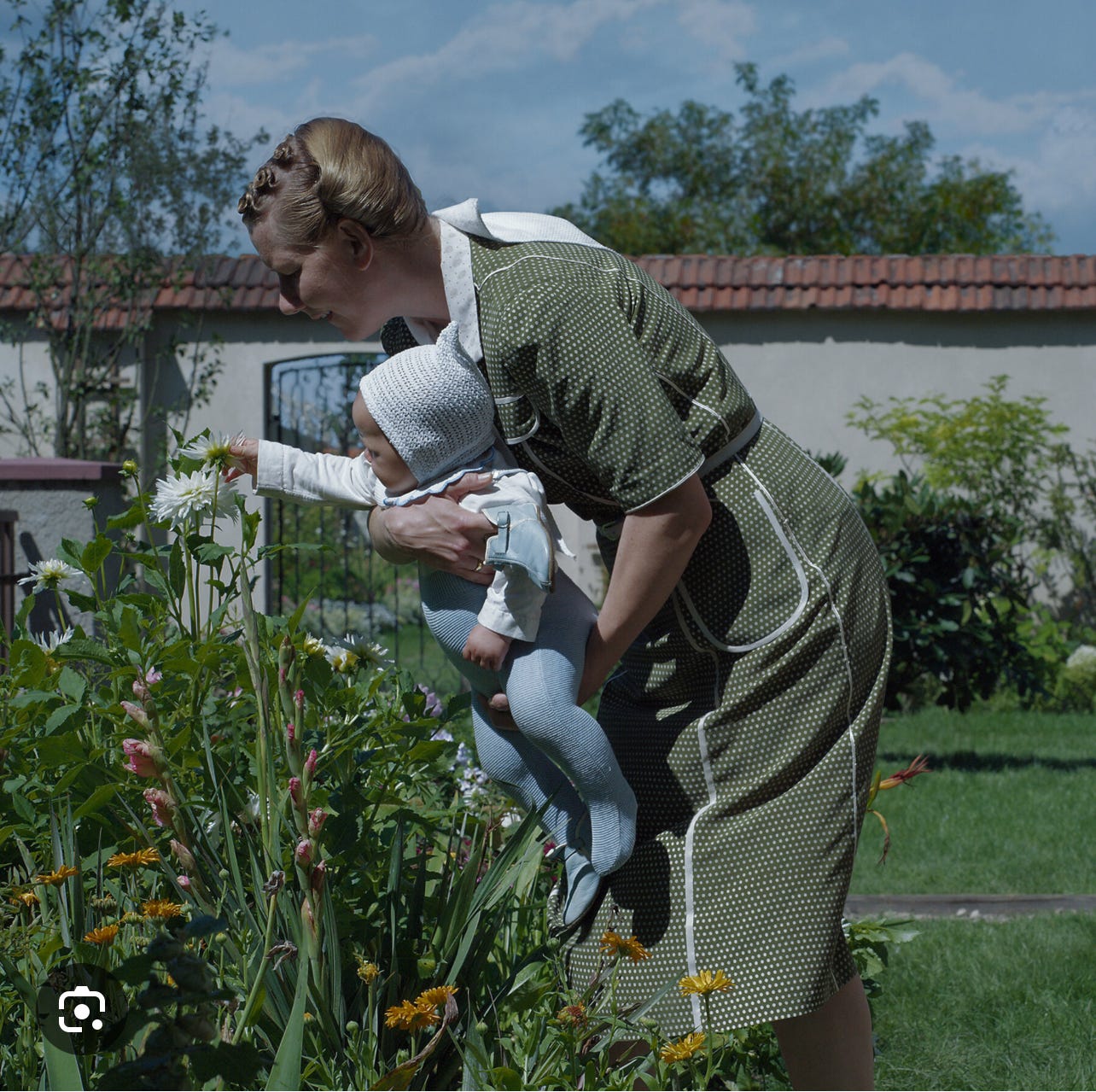As some of you may recall, I had the opportunity to visit Auschwitz-Birkenau concentration camp in winter 2021.
On a viciously cold day, we trudged for miles through the former barracks and crematoriums of the complex. While standing beside the grim, abandoned railroad tracks, we noticed some ordinary-looking homes nearby. We were struck by the notion that the people who lived there at the time had to know what was going on. “The Zone of Interest,” Jonathan Glazer’s film based on a 2014 novel by Martin Amis, builds on that idea.
The film’s protagonist, Rudolf Hoess (Christian Friedel), is the Commandant of Auschwitz. He lives in a tidy home on a large piece of land separated only by a wall from the camp. His wife Hedwig (Sandra Huller from “Anatomy of a Fall”) is a homemaker who raises the couple’s five children. Maids take care of the household’s menial tasks, which leaves time for Hedwig to gossip with her lady friends and tend her large flower and vegetable garden.
Every so often, packages arrive for Hedwig containing fancy garments that she sometimes shares with the household help. One morning, a fur coat arrives which Hedwig clearly appreciates and tries on for size. She’s unfazed even when she finds a lipstick in the pocket.
It is obvious where such items have come from.
The Hoess children, meanwhile, play with their toys and attend school, while over the wall, we occasionally hear gunshots, screaming, and trains arriving and leaving. The sky sometimes darkens with smoke, other times reddens with flames. The Hoess household is unfazed by all this. It is peaceful and uneventful to the point of being dull.
Meanwhile, Commandant Hoess is busy with his own day-to-day tasks. One day, for example, he meets with experts who without emotion discuss designs for crematoriums as well as machines that can facilitate efficient movement of “cargo” from one chamber to another.
The family’s “idyllic life” is disrupted when Hoess, in recognition of his “good performance,” is sent to “shape up” a less efficient camp near Berlin. Hedwig, distraught at having to leave Auschwitz, is granted her request to stay behind with the children. Hoess does so well with this new assignment he is given another one: heading up an operation named after him to transport 700,000 Hungarian Jews to work or be killed. Auschwitz is to be a critical part of that effort which will allow him to be reunited with his wife and family. As he contemplates the new assignment, the movie ends abruptly—in a way that is baffling but brilliant.
While covering the trial of Adolf Eichmann in 1969, Hannah Arendt wrote famously about the “banality of evil.” This movie perfectly captures the apathetic, unemotional personality of a man who believes he was simply doing his job, and a family who blindly follows him—based in no small part on the perks of his job.
Fortunately Hoess paid the price for being such an order taker—he briefly went into hiding after the war, but was eventually captured and found guilty, and executed by hanging in 1947.
Without showing a single corpse or prisoner, “The Zone of Interest” paints a terrifying portrait of genocide—a term that people throw around so carelessly today. It also makes one contemplate the famous Georges Santaya quote: “those who do not remember history are doomed to repeat it.”
Not surprisingly, “Zone” swept Cannes and BAFTA and has been nominated for five Academy Awards.
See it. Bear witness.
Like this review? Follow me at “What Does Aug Think?” at acsntn.substack.com. Thank you!




Never again.
Thank you for your most revealing and honest review of "The Zone of Interest." My sister and I can relate to the frightening words and to the pictures in our minds of what happened decades ago. As we left the crowded theater , silence was dominant. I only wish that history does not repeat itself.